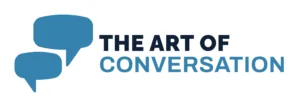On December 1, 2024, President Joe Biden issued a full and unconditional pardon to his son, Hunter Biden, who had been convicted on federal gun and tax evasion charges earlier in the year. This unprecedented act has ignited extensive debate across political and public spheres, raising questions about the motivations behind the pardon, its legal ramifications, and its impact on public trust in governmental institutions.
Background of Hunter Biden’s Legal Issues
Hunter Biden, the second son of President Biden, has faced a series of legal challenges over the past decade. His struggles with substance abuse have been well-documented, and these personal issues have intersected with legal infractions, leading to significant public scrutiny.
Firearm Charges
In June 2024, Hunter Biden was convicted on three federal firearm charges. The charges stemmed from a 2018 incident in which he purchased a .38 caliber handgun in Wilmington, Delaware. During the purchase, he completed a federal background check form, falsely stating that he was not an unlawful user of, or addicted to, any controlled substances. At the time, he was reportedly struggling with addiction to crack cocaine. The charges included making a false statement during the purchase of a firearm and illegal possession of a firearm while being a drug user.
Tax Evasion Charges
In September 2024, Hunter Biden pleaded guilty to nine federal tax-related charges. These charges involved failing to pay approximately $1.4 million in taxes over several years. The offenses included tax evasion and filing false tax returns, highlighting a pattern of financial misconduct during a period marked by personal turmoil and substance abuse.
President Biden’s Decision to Pardon
The decision to pardon Hunter Biden represents a significant reversal from President Biden’s earlier stance. Throughout his presidency, he had consistently stated that he would not interfere with the Department of Justice’s proceedings concerning his son. As recently as November 2024, White House Press Secretary Karine Jean-Pierre reiterated that the president had no plans to pardon or commute his son’s sentences.
In a statement released on December 1, 2024, President Biden justified his decision by asserting that his son had been “selectively, and unfairly, prosecuted.” He emphasized that similar cases involving firearm possession by individuals with substance abuse issues or tax evasion are typically resolved through non-criminal avenues. The president suggested that political opponents had instigated the charges against Hunter Biden to attack him personally, leading to what he described as a miscarriage of justice.
Hunter Biden, in response to the pardon, acknowledged his past mistakes during his addiction and expressed gratitude for the clemency. He stated his commitment to using his experience to assist others struggling with similar issues, highlighting his ongoing recovery and dedication to service.
Legal and Ethical Implications
The presidential pardon power, as outlined in Article II, Section 2 of the U.S. Constitution, grants the president authority to issue reprieves and pardons for federal offenses, excluding cases of impeachment. This power is broad and has been exercised in various contexts throughout American history. However, its use in cases involving close family members of the president is unprecedented and raises complex legal and ethical questions.
Precedents and Comparisons
Historically, presidents have exercised their pardon power in controversial ways. For instance, President Gerald Ford pardoned his predecessor, Richard Nixon, following the Watergate scandal—a decision that was met with significant public disapproval at the time. Similarly, President Bill Clinton faced criticism for pardoning his half-brother, Roger Clinton, and financier Marc Rich on his last day in office.
However, the pardon of a president’s own child is without precedent in modern American history. This action brings forth concerns about potential conflicts of interest and the impartial application of justice. Critics argue that such a pardon could set a troubling precedent, suggesting that individuals with close personal connections to the president might receive preferential treatment under the law.
Ethical Considerations
The ethical implications of President Biden’s decision are multifaceted. On one hand, the president’s role as a father may naturally incline him to protect his son, especially if he believes the prosecution was unjust. On the other hand, as the nation’s chief executive, he bears the responsibility to uphold the integrity of the legal system and ensure that justice is administered fairly and without bias.
By intervening in his son’s legal matters, President Biden risks eroding public trust in the impartiality of the justice system. The perception that familial ties can influence legal outcomes undermines the foundational principle that all individuals are equal before the law. This action may lead to increased skepticism about the fairness of legal proceedings, particularly in high-profile cases involving political figures and their families.
Political Repercussions
The pardon has elicited strong reactions across the political spectrum. Republicans have condemned the move as an abuse of power and a miscarriage of justice. President-elect Donald Trump criticized the pardon, questioning whether it would extend to individuals convicted in connection with the January 6, 2021, Capitol riot. He characterized the pardon as a misuse of presidential authority, suggesting it reflects a double standard in the application of justice.
Democrats have exhibited a range of responses. Some have expressed understanding of the president’s difficult position as a father, while others have voiced concerns about the potential implications for the party’s commitment to upholding the rule of law. The decision may have lasting effects on the Democratic Party’s image, particularly regarding its stance on justice and accountability.
The pardon also arrives at a critical juncture, as President-elect Trump prepares to assume office. This development could influence the incoming administration’s approach to issues of justice and executive authority, potentially prompting legislative efforts to reform the presidential pardon process to prevent perceived abuses of power.
Public Perception and Trust in Institutions
Public reaction to the pardon has been polarized. Supporters of President Biden may view the pardon as a compassionate act by a father seeking to rectify what he perceives as an unjust prosecution of his son. Conversely, critics see it as a blatant misuse of presidential power that undermines the credibility of the justice system.
